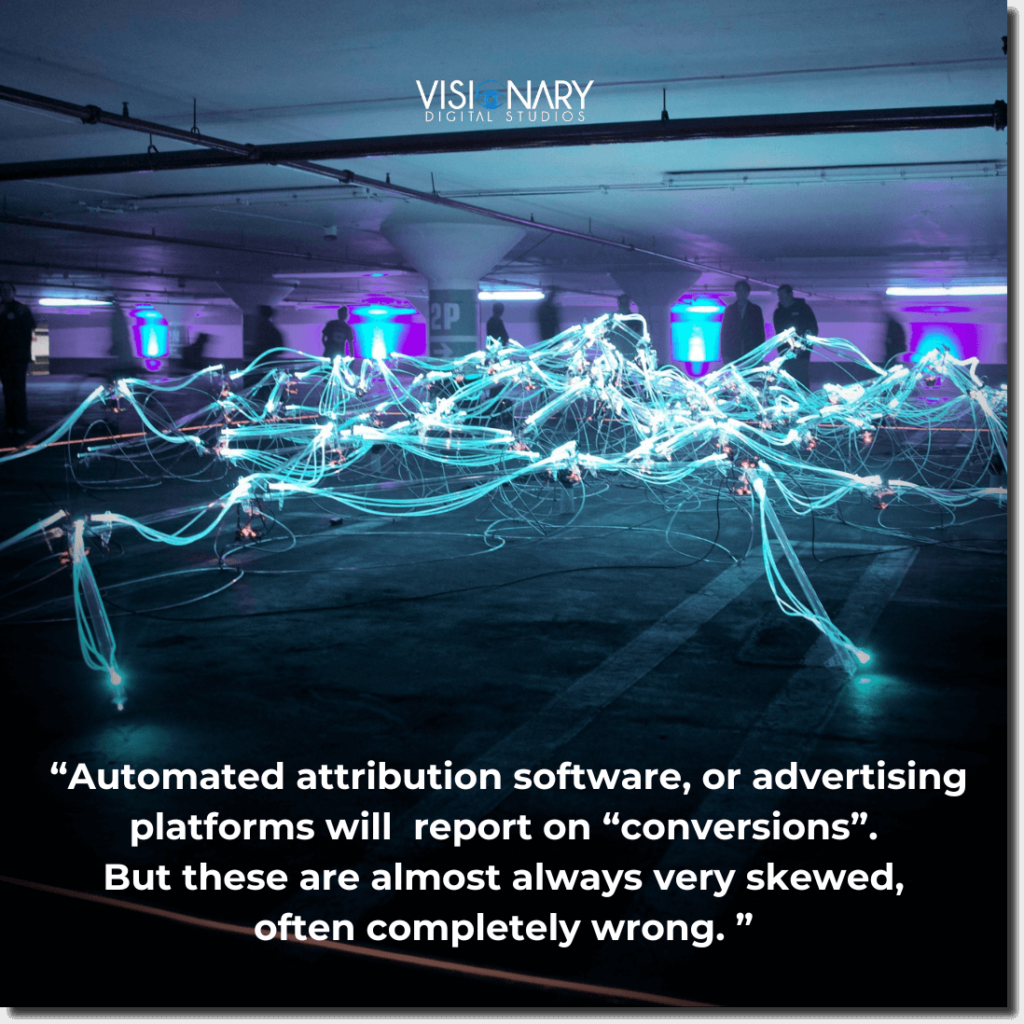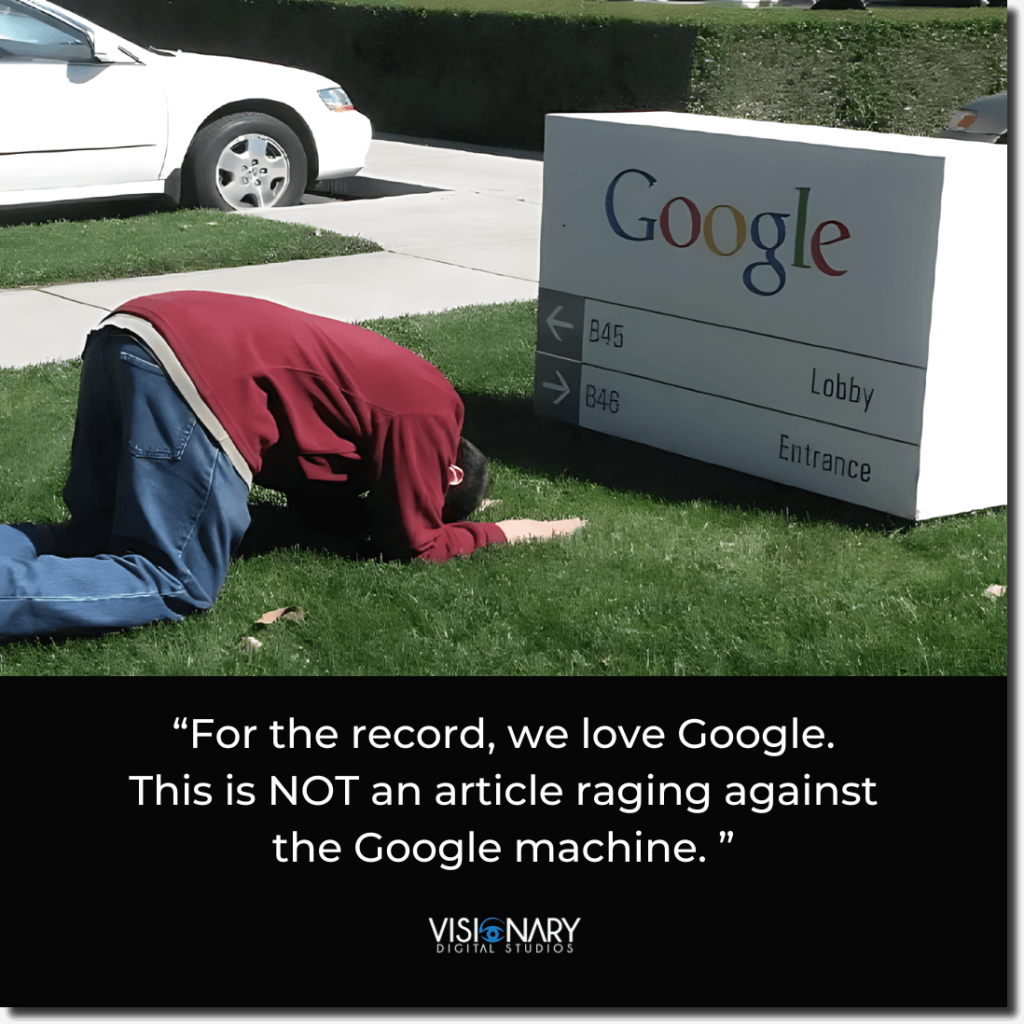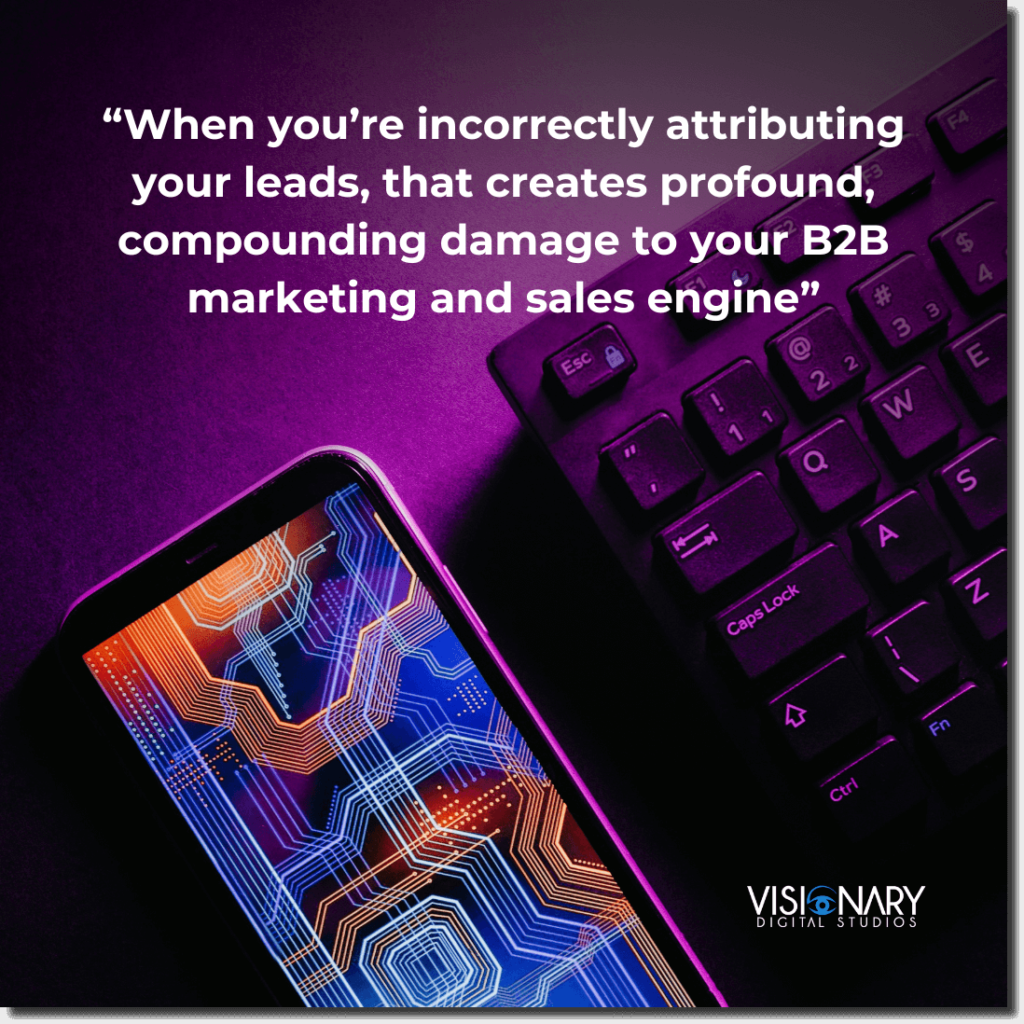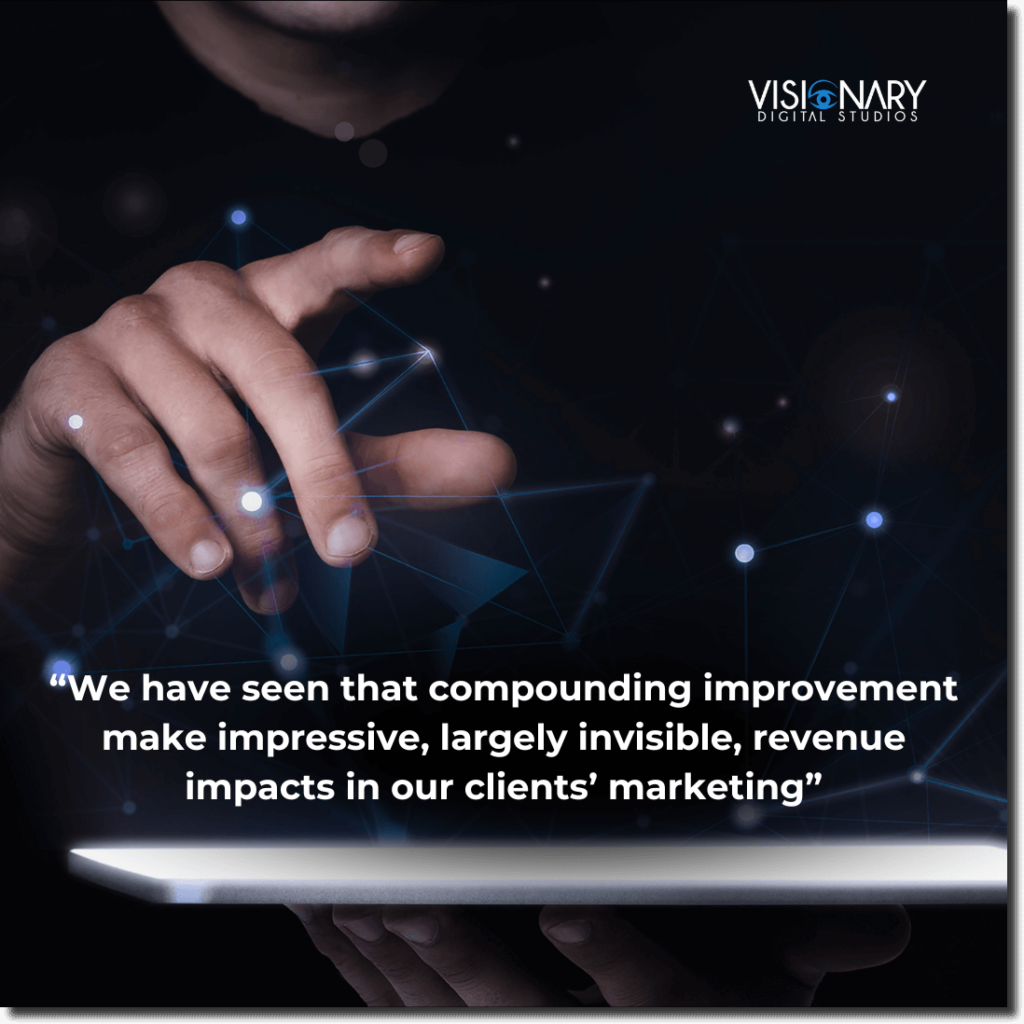When B2B salespeople forget to ask the question:
“So I can tailor your call, can you tell me how you heard of us and what you’ve seen online?”…
… It’s an expensive mistake that costs organisations 5 – 7 figures every year.
Are we being melodramatic? Or is there any reality to this intense claim?
Let’s break it down …
If you don’t ask the question, you won’t accurately know where your QUALIFIED leads are coming from.
Automated attribution software, or advertising platforms themselves, will report on “conversions” in your marketing. But these stats are almost always very skewed, often completely wrong.
For example – in MANY cases, they unfairly credit Google ads or search for leads that originated elsewhere.
Even when your audience sees 10 – 20 ads on a Meta or LinkedIn newsfeed, they still may not want to click away to a Landing Page. Think about it: while your busy scrolling, how often do YOU click an ad? Not often, right?
But when it‘s the right time to buy they’ll remember you and search for you or your service. Automated attribution software then incorrectly tells you the lead came from a Google search.
And your Google marketer will unconsciously present you with that data, without deeper analysis.
(For a deeper understanding of why so many marketing campaigns fail due to issues like these, check out our article on Why Marketing Campaigns Don’t Work.)
The same thing happens when your current customers start seeing your content marketing “everywhere” on their Meta and LinkedIn newsfeeds.
When they decide they need more of your services, they won’t click an ad. They’ll reach out to you by email, or discuss during your next meeting. Again, you’ll inaccurately credit the lead as a “returning customer”, without realising it’s your advertising that is creating the opportunity.
Another example is when someone in your audience sees your ads on LinkedIn, realises you can help his/her organisation, then recommends to their manager that they look you up and book a demo. Again… the manager does a quick search and Google inaccurately takes the credit.
When you ask the question, you’ll be SHOCKED at how regularly your “Google” leads shouldn’t be credited entirely to Google. Or, you’re automated attribution is crediting the wrong lead source.
(We see this time and time again in client campaigns, almost unanimously).
But without asking your prospects the question, all of this is a mystery when you’re reviewing your monthly reporting.

QUICK PAUSE. FOR THE RECORD…
At Visionary, we love Google.
We have active Google Ads clients right now, and many case studies where Google was by far the optimal choice of advertising platform. And of course, all web content we produce is SEO-considerate.
This is NOT an article raging against the Google machine.
However, in our experience, Google is the most frequent example of expensive attribution mistakes.
Phew!…

OK, but still… Why is NOT asking the question an expensive 5 – 7 figure mistake?
When you’re incorrectly attributing your leads, that creates profound, compounding damage to your B2B marketing and sales engine:
- Your management team make data-driven decisions based on the reporting you provide. So, based on the data, you start to over-invest in the wrong things because you don’t understand what is working
- That leads to the age-old “marketing vs sales” problem. Marketing produces many leads, but sales simply can’t close them
- So, now you’re also wasting your expensive sales resources on lots of poor-quality leads
- And, as a result, you also under-invest in what’s truly bringing real-world results because you don’t even realise it’s working
It’s a frustrating cycle.
But it’s so common in the last few years of B2B marketing because, since Covid, buying behaviour has shifted so much, but our approach to attribution hasn’t. So without asking the question, the issue stays largely invisible. No one in your organisation knows why increased marketing budget is not yielding real revenue results.
Then, as a result, your marketers are forced to do “marketing agency mental acrobatics”, making complex hypotheses to justify incorrect data.

Wait, the rabbit hole goes even deeper… Not asking the question is also costing you opportunities:
When you DO ask the question, you create so much value. Your prospect will:
- Provide details on exactly which of your content pieces inspired them most
- Reveal how deep into your content marketing they are, and how close they are to buying
- Tell you exactly who referred them and why
- Reveal what they searched on Google
- Tell you more about their buyer’s journey than just what happened at the end
So, every time you ask the question you uncover intel that allows your marketers to continually double down on what is truly moving the needle in the business …
We have seen that compounding impact make impressive, often invisible, revenue impacts in our clients’ marketing.
All things considered, not asking the simple attribution question at the start of every sales call is costing organisations 5 – 7 figures of missed revenue and poor data-driven decisions, every year.
Ouch!

The simple solution: Include the question near the start of every sales call:
“So I can tailor your call, can you tell me how you heard of us and what you’ve seen online?”
Add to that a few other little steps:
- Be diligent about recording the response data in the CRM so your team can make use of it
- Based on the prospect’s answer, you should ACTUALLY tailor the call. Otherwise, you’re starting the conversation with a scripted lie
- Communicate the trends to your marketing team so they can continually double down on what’s creating impact
- Consider presenting your Discovery Call or Demo on a Powerpoint screen share, so that you don’t forget this question (and others)
It’s such an easy adjustment for the sales team to make, with such massive upside potential. We hope this has convinced you to make the change …

